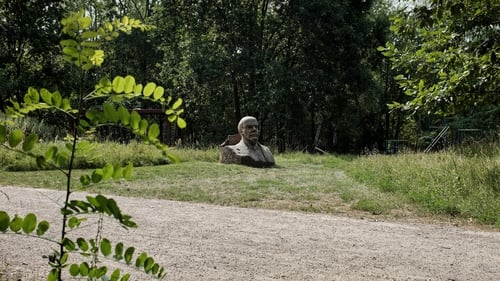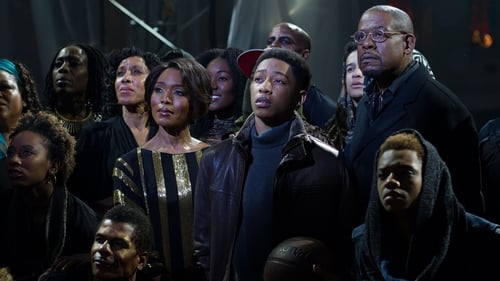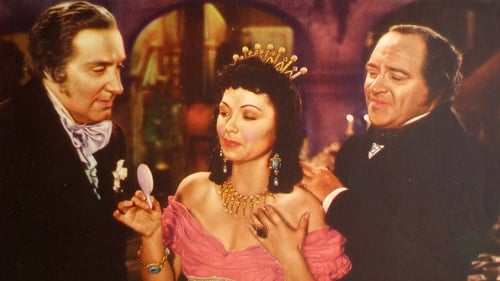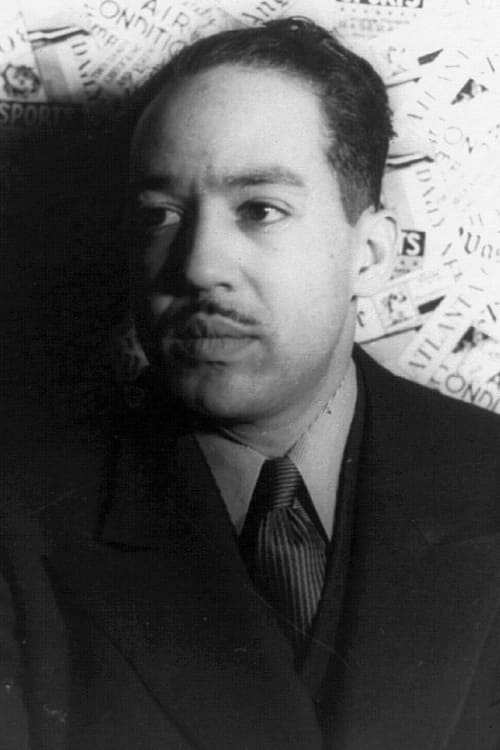Langston Hughes
Nacimiento : 1901-02-01, Joplin, Missouri, USA
Muerte : 1967-05-22
Historia
An influential American writer from the early to mid 20th century. Beginning with the publication of "The Negro Speaks of Rivers" in 1921, Hughes first captured the public's imagination as a poet. A versatile writer, Hughes was also adept in writing short stories, novels, plays, and non-fiction. His work often focused on the lives of ordinary people and frequently employed humor, social commentary, and folk wisdom in his writing. In the late 1930s he began writing for Hollywood, but his time there was short lived due to a variety of factors, not least of which was the racism prevalent in the industry at that time. During his lifetime, he received one feature film credit for writing "Way Down South" (1939) with Clarence Muse. In the early 1960s, his play "Black Nativity" was produced for British television.

Poem
Engaging with the poetry of Langston Hughes, this film investigates the afterlives of Vladimir Lenin in eastern Germany.

Writer
With music by Duke Ellington, Harold Arlen, Dorothy Fields and more framed by the poems of Langston Hughes, this exhilarating song and dance extravaganza features 28 of the big band era’s most memorable songs and showcases the gorgeous glamour and sophisticated syncopation of the Harlem heartbeat after midnight.

Lyricist
The main plot of this rampant collection of scenes from the streets of the lower East Side of New York revolves around Frank and Anna Maurrant and their daughter Rose. A violent and tough character, Frank fails to see his wife’s growing despair due to his lack of affection. When he discovers her with her lover, he shots them both and goes to jail, leaving behind a heartbroken Rose who, after having experienced relentless harassment by two aggressive suitors, misses her one true chance at love. The opera ends by showing the streets of New York City moving on from these mundane events in total indifference.

Theatre Play
Un joven adolescente de color que vive con sus abuelos se queda dormido en la iglesia durante la misa de navidad, donde sueña con una natividad negra.

Story
From the short story by Langston Hughes.

Music
The opera takes place on the doorstep of a tenement on the East Side of Manhattan on two brutally hot days in 1946. The story focuses on two plotlines: the romance between Rose Maurrant and her neighbor Sam Kaplan; and on the extramarital affair of Rose's mother, Anna, which is eventually discovered by Rose's irritable father, Frank. The show portrays the ordinary romances, squabbles and gossips of the neighbors, as the mounting tensions involving the Maurrant family eventually build into a tragedy of epic proportions. Broadcast on BBC Two on New Years Day, 1993, this production was performed by the English National Opera and conducted by James Holmes.

Himself (archive footage)
A black and white, fantasy-like recreation of high-society gay men during the Harlem Renaissance, with archival footage and photographs intercut with a story. A wake is going on, with mourners gathered around a coffin. Downstairs is an elegant bar where tuxedoed men dance and talk. One of them has a dream in which he comes upon Beauty, who seems to reject him, although when he awakes, Beauty is sleeping beside him. His story and his visits to the jazz and dance club are framed by voices reading from the poetry and essays of Hughes and others. The text is rarely explicit, but the freedom of gay Black men in the 1920s in Harlem is suggested and celebrated visually.

Original Story
In the course of a botched purse-snatching, a boy comes to question the path of his life. Billy Woodberry’s second film, and first completed in 16mm, adapts Langston Hughes’ short story, Thank You, Ma’am, and features music by Leadbelly, Thelonious Monk and Miles Davis. (Ross Lipman)

Writer
Harry Belafonte and Sidney Poitier travel down memory lane to see what life was like back in the 1920s. Harry Belafonte introduces this musical, written by poet and playwright Langston Hughes, which pays tribute to Harlem in the 1920's. Sidney Poitier provides commentary on the era throughout the program, and George Kirby and Nipsey Russell portray various Harlem characters. Program highlights include: Gloria Lynne singing "Good Ol' Wagon"; Brownie McGhee singing "Let the Deal Go Down"; Diahann Carroll singing "Nobody Knows You When You're Down and Out"; Sammy Davis, Jr., singing and tap dancing to "Doin' the New Low Down"; Joe Williams singing "Nobody Knows the Way I Feel This Morning"; and Duke Ellington performing "Sophisticated Lady" with a sextet.

Theatre Play

Screenplay
Produced and conceived by French filmmakers Jean Cocteau and François Villiers, with a screenplay by Langston Hughes, Rhythm of Africa takes a look at the special ceremonial dance of atonement in Chad. The heartbeat of the jungle, the day-to-day life in the modernizing village, and the bustling marketplace take on a hypnotizing rhythm of their own. A changing Africa asserts itself in a changing world.

Poem
Razz accidentally shoots his wife Martha when his hunting rifle drops on the floor and discharges. The church congregation gathers at Martha’s bedside to pray for her recovery, and during this period an angel arrives to take Martha’s spirit from her body, but she is tempted by the slick Judas Green, who is an agent for Satan.

Writer
In the pre-Civil War South, a plantation owner dies and leaves all his possessions, including his slaves, to his young son. While the deceased treated his slaves decently, his corrupt executor abuses them unmercifully, beating them without provocation, and he is planning to sell off the father'e estate--including the slaves--at the earliest opportunity so he and his mistress can steal the money and move to France. The young boy doesn't want to sell his father's estate or break up an of the slave families, and he has to find someone to help him thwart the crooked executor's plans.





